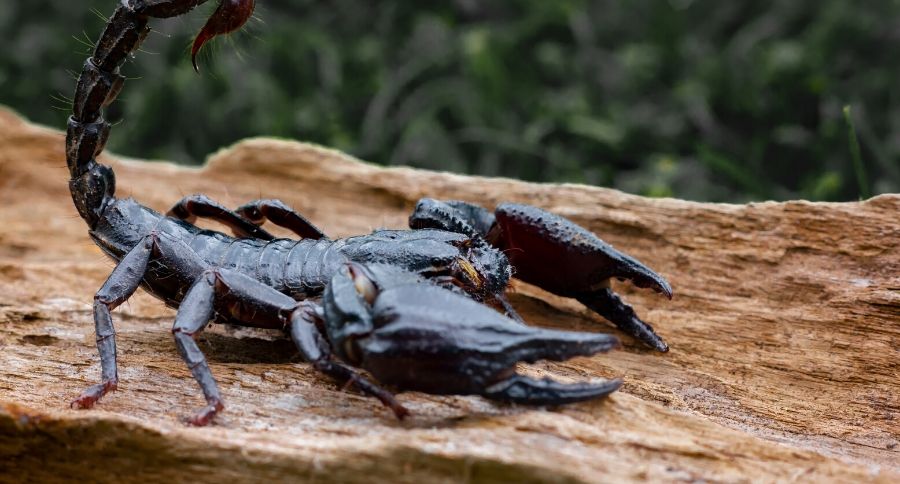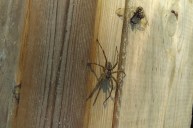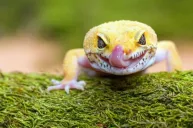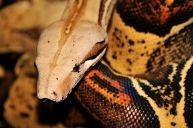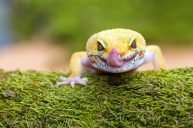Emperor scorpions are easy to care for but handling them isn't recommended! These Emperor black scorpions are the largest, but not the longest, of the scorpion species.
They are glossy black but can be dark brown to green. These scorpions are popular pets because they're calm. Yikes!
The emperor black scorpion is also known as the "imperial scorpion" and the best fact we discovered during our research is that scorpions are ancient arachnids, having been on Earth for over 400 million years!
Breed overview
The Spruce Pets tells us these breed facts:
- Scientific name: Pandinus imperator
- Common names: Emperor scorpion, imperial scorpion
- Adult size: About 6 inches long
- Life expectancy: 6-8 years
- The level of care is easy! This is the scorpion recommended for first-time owners. There is one fact that I didn't love after researching this story! The gestation period for these arthropods is 7-9 months and occurs inside the female's body. Live birth to as many as 35 young can occur.
Behavior and temperament
https://www.instagram.com/p/B81xaY-BfBt/
Males are territorial and will fight to the death. Don't house them together!
Like all scorpions, they use sensory hairs to detect ground and air vibrations. They have poor eyesight, good hearing and a good sense of touch.
These exotic pets do molt. Scorpions grow and shed their entire exoskeleton several times before they are fully grown.
Housing and diet
https://www.instagram.com/p/B8WUpMWnfLl/
Emperor black scorpions live in the hot, humid rainforests of the coastal countries of western Africa from Senegal to the Congo to Gabon. These scorpions are used to living in tropical forests in West Africa.
Your pet scorpion will need a glass aquarium tank. Emperor scorpions do not need UVB lights but they do need a temperature gradient between 70 and 90 degrees Fahrenheit.
What do they eat? They eat crickets!
In the wild, emperor scorpions eat a variety of invertebrates (insects and other arthropods) and vertebrates, including small lizards. In captivity, they seem to do fine with a diet primarily of gut-loaded, calcium-dusted crickets and termites, supplemented with other insects such as mealworms and moths.
Provide a shallow water dish.
Do you own a scorpion? Please leave us a comment below!
WATCH NOW: Learn About the Hognose Snake!
